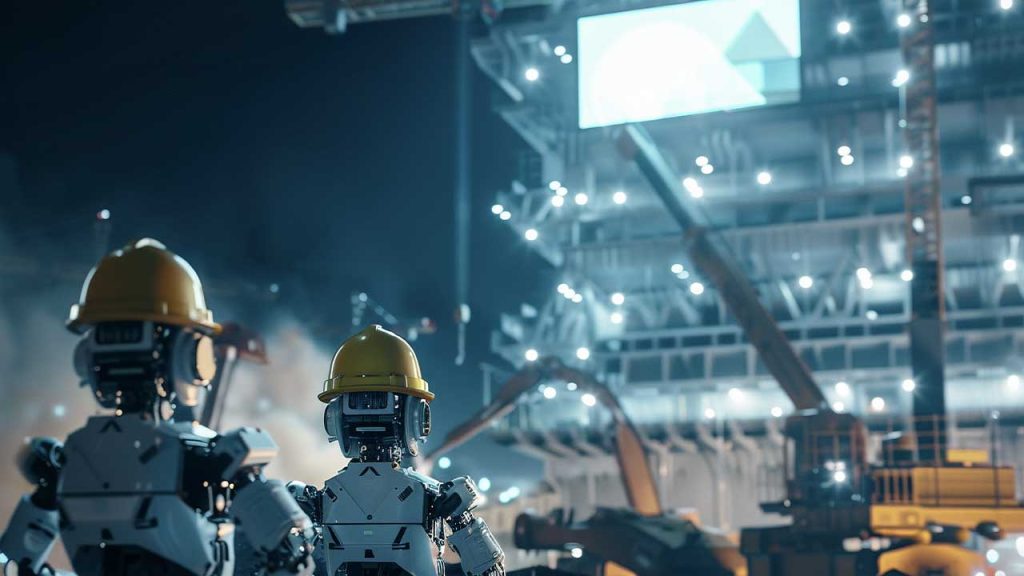From Predictive to Proactive: Key Takeaways from Cognite’s Impact 2025
How Industrial AI Is Transforming Operations, Workforce, and Decision-Making at Scale
Cognite’s Impact 2025 made one thing clear: the era of reactive operations is over. Across both days, the narrative centered on proactive intelligence, powered by industrial AI and large language models, that augments human expertise, transforms operations, and scales across industries and geographies.
AI at the Core of Industrial Transformation
The first keynote set an ambitious tone. CEO Girish Rishi framed the moment as an inflection point: industrial AI is no longer a niche tool; it’s a foundational lever for productivity, safety, and operational resilience. Cognite’s strategy combines multi-vertical, multi-regional deployment with a cloud-native platform infused with LLMs, enabling industrial data to drive smarter decisions at every level.
Rishi highlighted real-world examples: from TotalEnergies expanding AI across upstream assets, Marathon Petroleum scaling in downstream operations, to pharma and discrete manufacturing leaders applying AI to mission-critical operations. The message was clear: industrial AI is no longer experimental, it’s strategic and operational.
From Overwhelmed to Empowered: Augmenting the Workforce
One of the most compelling demonstrations involved a factory worker addressing excess oil dissipation in a compressor. Traditionally, diagnosing such a problem could take weeks of poring over sensor data, product specs, and procedures. Using Cognite’s platform, AI agents tap into knowledge graphs and multimodal data, immediately contextualizing the problem, diagnosing root causes, initiating corrective actions, and even generating preventative work orders in SAP.
As Rishi emphasized, this isn’t just about automation; it’s about augmenting frontline workers, engineers, and control-room operators, enabling them to make faster, more accurate decisions without being buried in data. Generative AI as a collaborative tool, not a replacement for human skills, intuition, and expertise, was a theme that recurred throughout the conference.
Proactive Problem Solving at Scale
Day 2 built on this vision, showing how AI can go beyond diagnosis to proactive maintenance and plant stability. In one scenario, a tank farm with minimal instrumentation relied on operators’ intuition to prevent pump failures. By applying multivariate predictive models across decades of operational data, AI enables the forecasting of failures, the prevention of dry-running pumps, and improved uptime, all without adding new sensors.
Similarly, for steam traps in reboilers or complex distillation systems, AI can detect subtle anomalies before they escalate into costly or unsafe process deviations. Across thousands of assets, these models translate into free reliability upgrades and more stable operations: tangible benefits that combine safety, efficiency, and reduced waste simultaneously.
Data, Trust, and Scale
Both keynotes emphasized that AI is only as good as the data it relies on. Cognite’s industrial data foundation ensures high-quality, trustworthy, and traceable data, giving engineers the confidence to act on AI recommendations. Transparency in data lineage, real-time contextualization, and explainable AI are essential to scaling these capabilities across regions, industries, and regulatory environments.
Generative AI is no longer a black box; it’s a tool embedded in workflows that can highlight causality, surface actionable insights, and allow organizations to avoid unnecessary maintenance or downtime, improving operational and financial outcomes.
A Multi-Industry, Multi-Regional Future
Cognite’s growth reflects the global momentum behind industrial AI. With offices across Asia, Europe, and the U.S., and a new North American Headquarters opening in Phoenix later this year, the company is leveraging talent ecosystems worldwide while paying mind to local regulations and sovereignty concerns. This multi-vertical, multi-regional approach is positioning AI not just as a tool, but as a strategic lever for national industrial competitiveness and resilience.
Looking Ahead: Human-Centric Industrial AI
The combined message from Impact 2025 is clear: the future of industrial operations is proactive, human-augmented, and AI-enabled. Engineers, operators, and workers are at the center, empowered by AI to act faster, prevent failures, and make better decisions. Artificial Intelligence agents will not replace humans but extend their capabilities, transforming industrial decision-making, at scale.
For industrial leaders, the takeaway is simple: the next wave of operational excellence will come from collaboration between humans and AI, anchored by trustworthy data, predictive intelligence, and real-time actionable insights. The question is no longer if industrial AI will redefine operations, it’s how quickly you can embrace it.
About the author
 This article was written by Greg Orloff, Industry Executive, IIoT World. Greg previously served as the CEO of Tangent Company, inventor of the Watercycle™, the only commercial residential direct potable reuse system in the country.
This article was written by Greg Orloff, Industry Executive, IIoT World. Greg previously served as the CEO of Tangent Company, inventor of the Watercycle™, the only commercial residential direct potable reuse system in the country.
